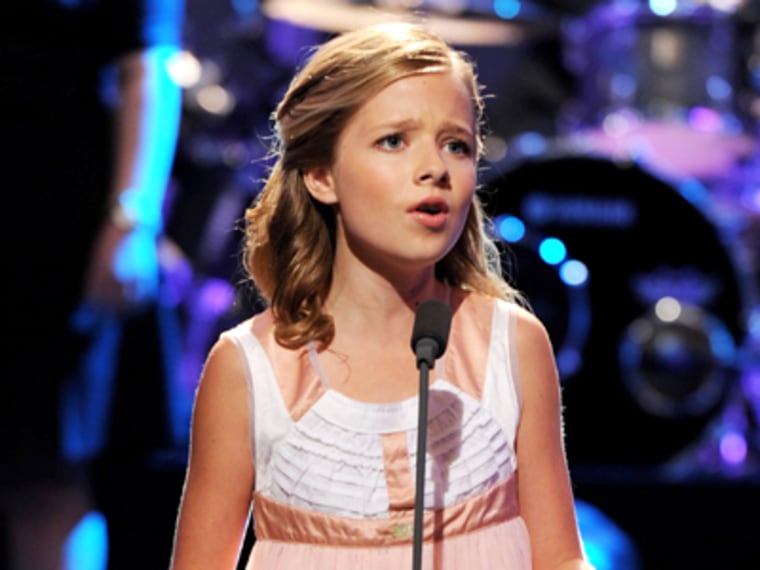Unlike “American Idol,” “America’s Got Talent” has no age minimum, so sometimes viewers and judges are blown away by huge voices coming from little girls.
Last season, it was angelic 10-year-old Jackie Evancho, whose performance of a Puccini aria left many thinking she had to be lip-synching. But in June she released her first full-length album -- on former “American Idol” judge Simon Cowell’s label.
This “AGT” season, 11-year-old Anna Graceman floored the judges with her powerful rendition of Alicia Keys’ “If I Ain’t Got You.” “I think decibels per inch, that is the loudest sound we’ve ever heard on the show,” Piers Morgan told her. Anna is all of 4 feet, 3 inches tall.
Now, I have a 12-year-old daughter who likes to sing, but she can be a little breathy. Her chorus teacher has assured her she’ll have a fuller voice with age. So why is it that Jackie and Anna could drown out a typical elementary school chorus?
Around puberty, girls’ voice boxes develop rapidly, expanding side to side as well as front to back. Often, there’s a disconnect between their child-like way of singing and their maturing vocal organ, explains Bing-Yi Pan, a researcher with a project called Advancing Interdisciplinary Research in Singing, or AIRS.
Once the voice box is almost fully developed, professional training can help girls speed through the transition from a breathy singing voice to a clearer, stronger sound.
Musically-gifted girls might learn to belt out a song simply by listening to a pro, adds Annabel Cohen, a psychology professor at the University of Prince Edward Island who leads the AIRS project. “With so much recorded music available, a young person might listen intently to a favorite chosen artist and then model her own voice to match it. Very good ear-voice coordination would be required, and not every child would have the anatomy or the mind to do it.”
Whatever you do, don’t ever tell your kids they can’t sing, says Graham Welch of the University of London, because adults’ negative comments could prevent them from ever reaching their musical potential.
And don’t gag if your young daughter likes to sing along with Lady Gaga ad nauseam. You never know. Perhaps she’s on her way to stardom. Or at least an “America’s Got Talent” audition.
Related links:
